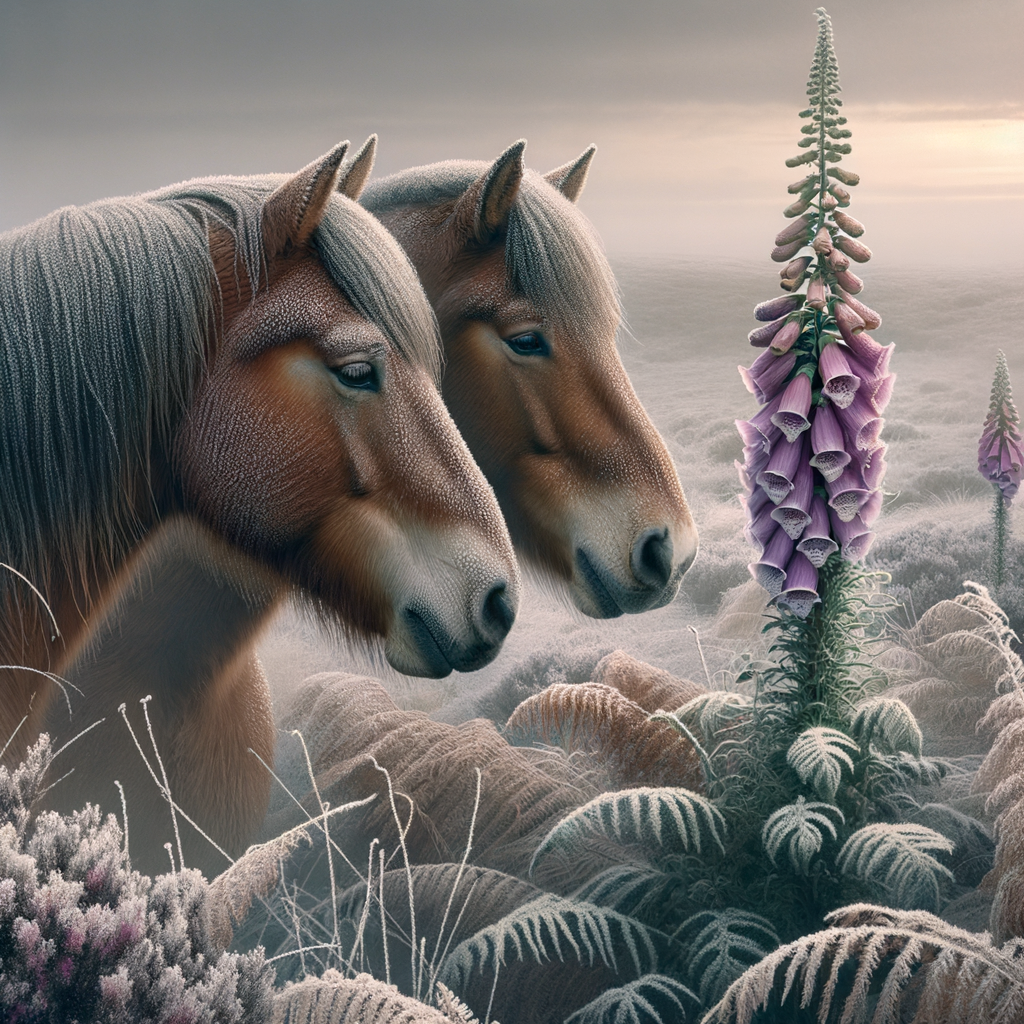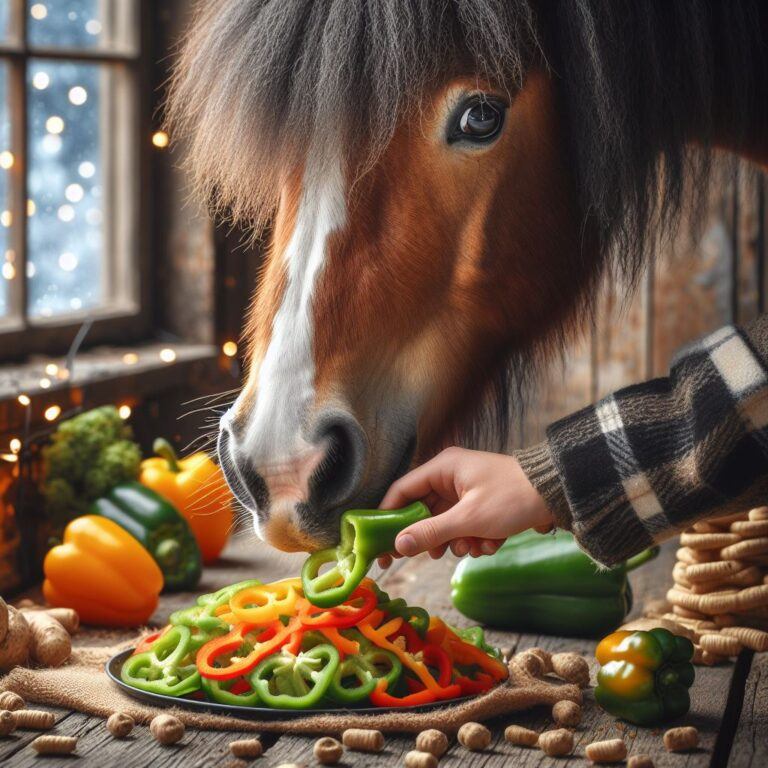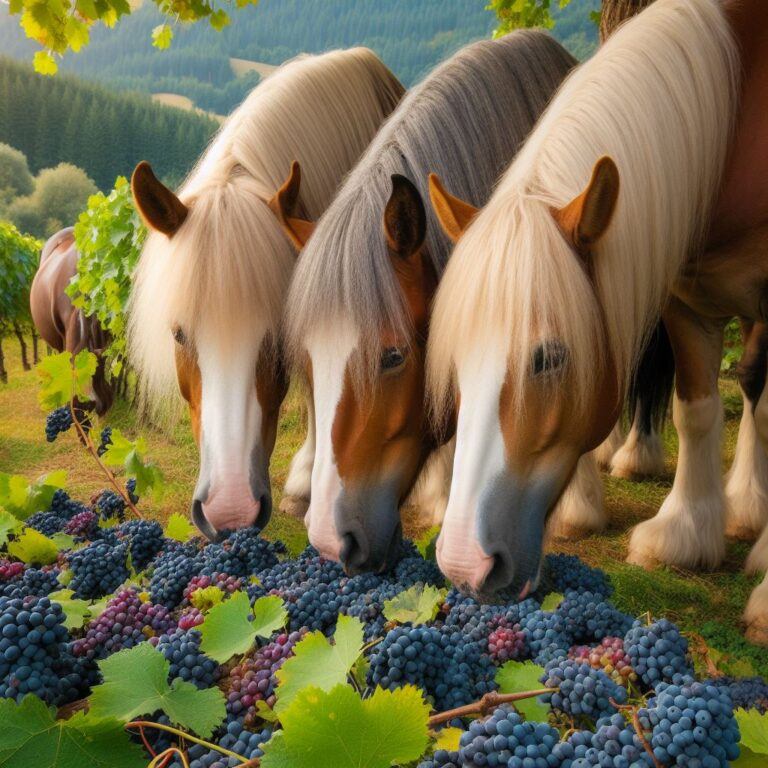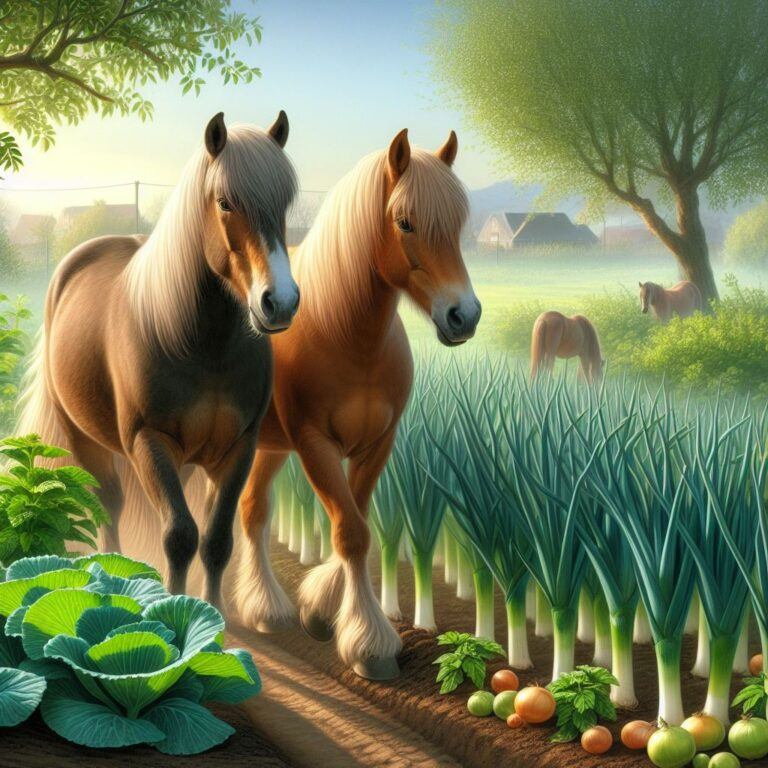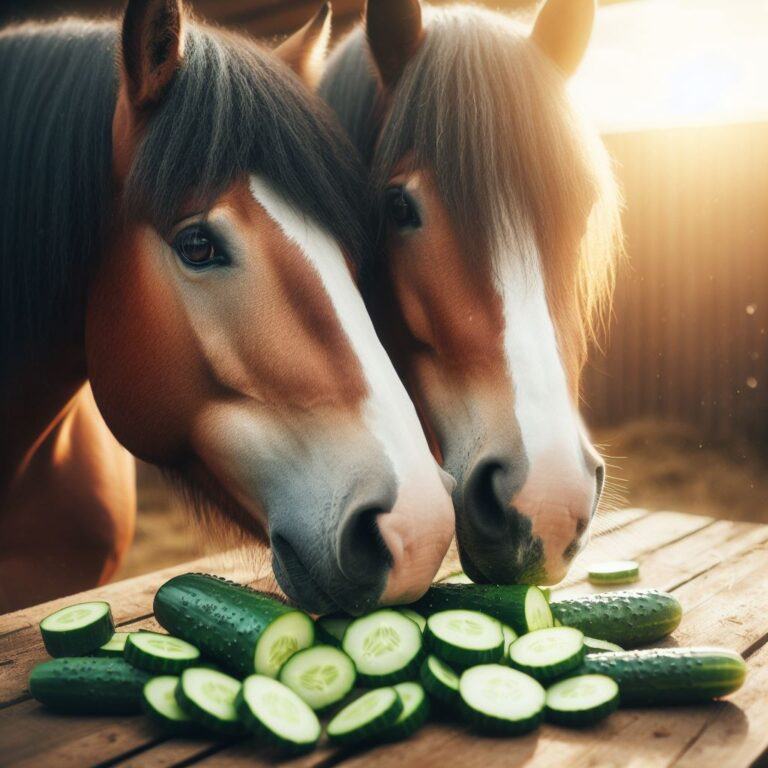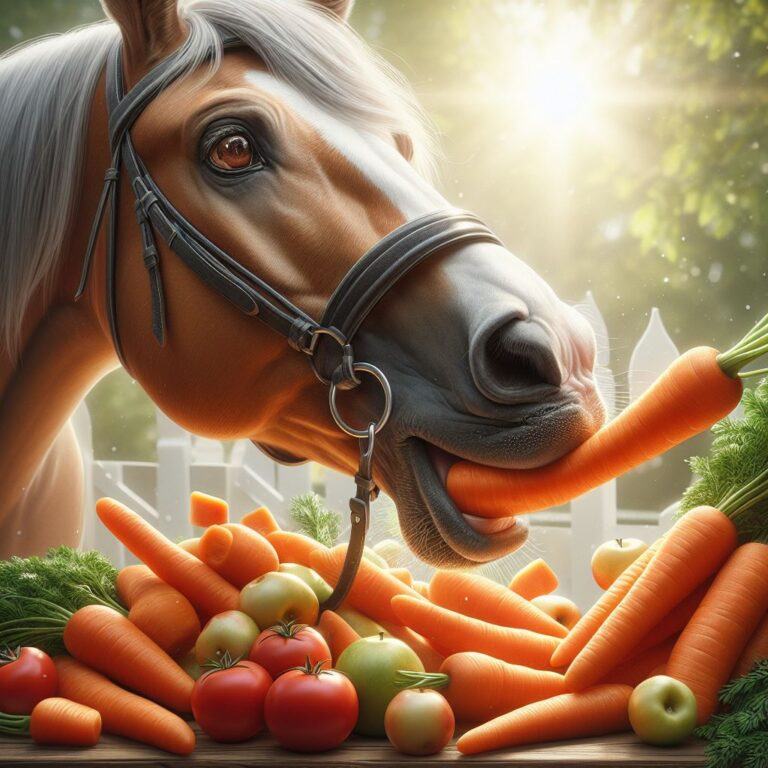Can Horses Safely Eat Foxglove Leaves In Winter
The definitive answer here is NO, horses cannot and should not eat foxglove leaves in winter or at any other time of the year for that matter. All of the foxglove plants contain toxic cardiac glycosides, primarily digoxin, which can cause severe poisoning and potentially be fatal if ingested by horses.
These toxic compounds, even in small quantities, can interfere with the electrical conduction system of the heart, leading to a whole host of serious problems for our horses.
Symptoms of foxglove poisoning in horses might include changes in heart rate, weakness, gastrointestinal distress, and in severe cases, collapse.
Horses are often more likely to browse on unusual foliage during the harsh winter months when grass is less abundant.
However, the cold season does nothing to reduce the toxicity of foxglove leaves. Therefore, the risk of foxglove poisoning in horses remains high throughout the year, regardless of the season.
With the well-being of our horses at stake, understanding what constitutes a safe and nutritious diet is paramount.
Understanding Plant Toxicity Concerning Horses
I want to offer you a practical understanding of what keeps a horse healthy and what doesn’t, particularly when it comes to their diet.
A balanced diet is essential for horses, comprising hay, grains, and pasture grasses. These provide the necessary nutrients for their well-being.
Also, the occasional treat of some carrots, apples, bananas, or pumpkin are great additions to keep our horse’s diets interesting.
Yet, just as important is knowing what to exclude from their diet. Horses are often curious creatures with an instinct to graze, which means they can unknowingly consume plants that are toxic to them.
Apart from foxglove, plants like yew, oleander, and hemlock are common offenders in horse pastures.
Recognizing these threats is an essential skill for every horse owner.
Lastly, the change in seasons can pose unexpected risks. Winter can decrease natural forage availability, leading horses to eat less familiar and sometimes dangerous plants.
Understanding that a snow-covered landscape or scarcity of food won’t render toxic plants like foxglove safe is critical. The cold or scarcity doesn’t affect the plant’s toxicity.
How to Safely Prevent Foxglove Poisoning for Our Horses
The responsibility to ensure the safety of horses from toxic plants like foxglove rests squarely on the shoulders of us as horse owners.
Preventive strategies are critical in safeguarding our beloved pets. Recognizing foxglove plants by their distinct features is the first step, they have tall spikes with tubular flowers that can range in color.
Regularly inspect pastures, especially during the early stages of growth in spring, and remove any foxglove plants to minimize risk.
Feeding practices should take center stage during the colder months.
Quality hay and formulated feeds are safe alternatives that provide necessary nutrition without the dangers of foraging on potentially contaminated land.
It’s worth investing time to make informed decisions about winter feed. If you’re unsure, consult with a veterinarian or an equine nutritionist to tailor a diet that’s safe and beneficial for your horse.
In the unfortunate event of suspected foxglove ingestion, immediate action is crucial. Watch for signs of poisoning, which may include changes in heart rate, digestive upset, and weakness.
Contact a veterinarian immediately if your horse shows any concerning symptoms. Having an emergency plan in place can be a lifesaver.

